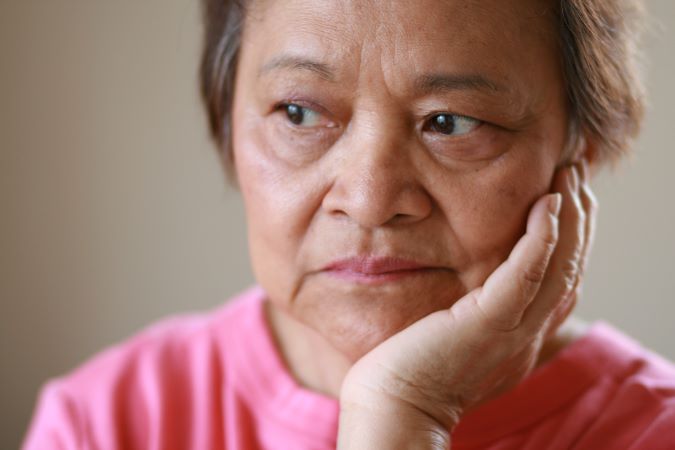Are you, or do you know a vulnerable person who may be neglected or abused? Are you or someone you know having a hard time taking care of yourself? Is someone you know not getting the care they need to be safe?
If so, the Adult Protection Program can help. They investigate and address abuse and neglect in adults who live with a disability and seniors aged 65 or older.
Abuse can take many forms, including:
- Self-neglect/neglect by another person including caregivers and loved ones (ex: withholding food or health services, inadequate clothing, poor personal hygiene, etc.)
- Medication misuse (ex: withholding medication, overmedicating, etc.)
- Physical (ex: slapping, pushing, hitting, etc.)
- Sexual (ex: any unwanted sexual act such as touching, kissing, fondling, etc.)
- Psychological/emotional (ex: yelling at, criticizing, threatening, humiliating, isolating, etc.)
- Financial abuse (ex: pressuring someone to make financial decisions they don't want to make, stealing or withholding money, etc.)
Understanding self-neglect
Self-neglect is when a person lives in a way that puts their own health, safety, or well-being at risk. Individuals who live alone or who have physical or cognitive decline, such as dementia, are at greater risk. The following signs may indicate that a person may be self-neglecting:
- Poor hygiene
- Not getting medical care when needed
- Poor nutrition
- Going without heat, water, or electricity in the home, and/or
- Living in an unsafe environment.
It’s important to understand that just because someone's lifestyle may seem different it doesn’t always mean they're neglecting themselves. People who are competent have the right to choose how they live, even if others view it as neglect.
If you notice signs of self-neglect in someone you care about, or you are unsure, you can reach out to the Adult Protection Program for support.
What about financial abuse?
As people age, they may become more dependent on others making them vulnerable to frauds, scams, and exploitation. Older adults are often the target of investment frauds and scams because they are more likely to have built up assets and have a steady income. While the Adult Protection Program doesn't look into financial abuse by itself, it may be part of the investigation if it directly impacts someone’s basic needs (ex: food, shelter, etc.). Visit the Senior Financial Abuse page to learn how to identify, report, and prevent senior financial abuse.
How to Report Abuse and Neglect
1. If you suspect that you, or someone you know, may be neglected, or abused call Social Development immediately at 1-833-733-7835.
- Next press option 1 to speak with a social worker that will gather your information.
- If the information meets the Adult Protection Program’s criteria, an intake will open and be referred to the program for an investigation.
Services are available 24 hours a day, seven days a week. Anyone can make a referral, such as:
- yourself,
- a health care professional,
- neighbour,
- caregiver,
- relative
- bystander, or
- the victim themself.
There is no penalty for reporting suspected abuse, even if it turns out that you were wrong.
2. A social worker who is trained in adult protection will take your call. They will ask you some questions, such as:
- What happened to cause you to make this referral today?
- What is your relationship to the adult/family being reported?
- Do you know the situation first-hand or second-hand?
- What is the problem?
- What is the adult's appearance (e.g., bruises, marks, clothing)?
- What are the details of the incident (e.g., time, date, witnesses, other professionals involved such as police, doctor)?
All referral sources, except during judicial proceedings, are kept confidential.
3. If the risk of abuse or neglect appears to be serious or life-threatening, an investigation begins immediately. If the situation warrants it, we may consult with the police or conduct a joint investigation.
4.The investigation involves gathering information to determine if abuse or neglect is happening. It involves interviews with the alleged victim and offender(s). It may also include interviews with neighbours, family members, or those familiar with the situation, including professionals. In some cases, a medical examination is warranted. Each case and investigation are unique.
5. If abuse or neglect is confirmed, an Adult Protection social worker will take steps to protect the safety and well-being of the individual involved. If needed, this may include providing support services like personal care, relief care, meal services, housekeeping, and supervision.
Declining Services
The Adult Protection Program makes every effort to identify and honor the adult’s wishes.
- If a victim is competent and decides they do not wish to receive services, the investigation may be closed.
- If the victim does not have the capacity to make that decision, Social Development will explore other options to keep them safe.
Other Resources
- The Public Legal Education and Information Service of New Brunswick (PLEIS-NB), has a booklet called ‘Preventing Neglect and Abuse of Seniors’ that defines the problem and has information on why neglect and abuse occur.
